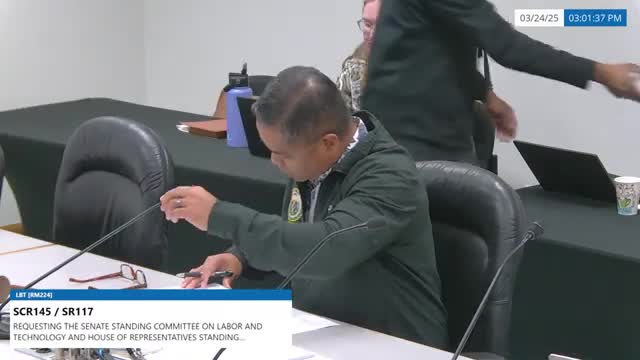Article not found
This article is no longer available. But don't worry—we've gathered other articles that discuss the same topic.
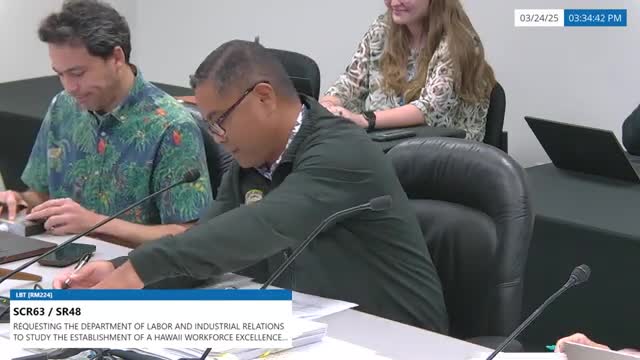
Committee advances resolution to study Hawaii Workforce Excellence Award
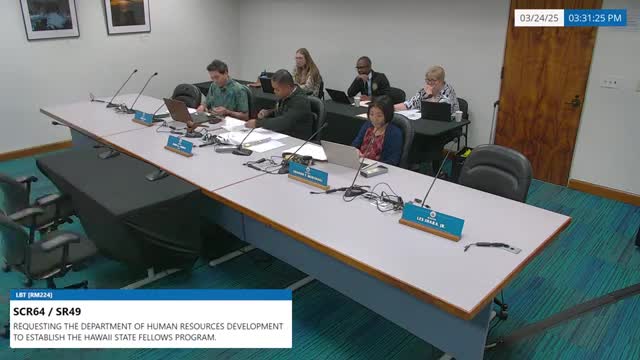
Senate committee approves measure directing agencies to coordinate on public mental health hiring
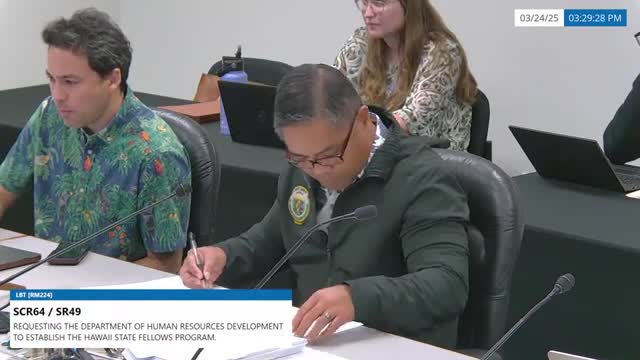
Committee defers proposal to establish Hawaii State Fellows Program indefinitely
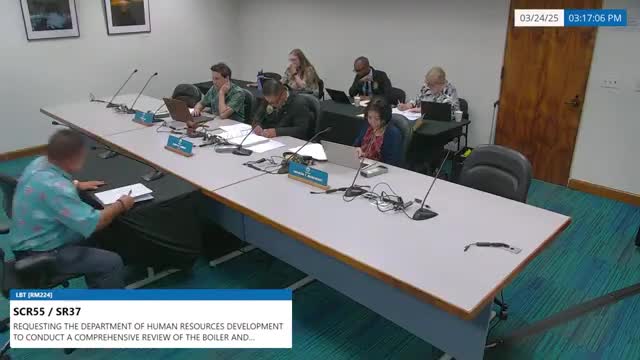
Committee advances resolution to review boiler and elevator inspection branch amid inspector shortages
